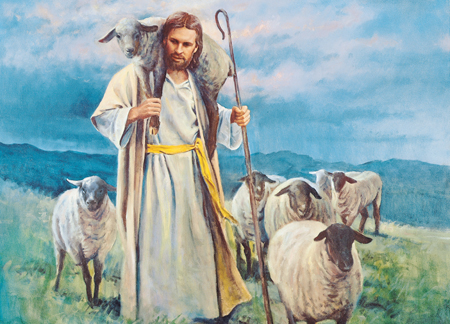
Sixth
Sunday of Easter
National
Labor Day in the Philippines
Acts 15: 1 – 2. 22 – 29 / Ps 67 / Rv 21: 10 –
14. 22 – 23 / Jn 14: 23 - 29
The word
“conflict” comes from two Latin terms, “con” which means “together” and
“fligere” which means “to strike.” Conflicts happen when we strike together a
single reality through different ways and means. For example, all of us here
share a common desire for a better Philippines. So we strike together such a
reality. However, conflicts arise because we have different ways and means to
reach a common dream. With the elections just around the corner, in May 9, we
want a better Philippines by choosing a candidate who has either a “blue blood,
a high blood, a half blood, a cold blood, or a dinuguan.” With these
differences, then, conflicts arise. And so, together with Fantine in Les
Miserables, we dream a “dream in time gone by, when hope was high and life worth
living, when men were kind, when their voices were soft and their words
inviting.” We all want to have a better and more peaceful world.
If you would
notice, there is a brewing conflict in our first reading today. Since
Christianity was expanding, it has also admitted the Gentiles who do not share
the Jewish tradition. A big question arose: If the Gentiles are not obliged to
follow our laws like circumcision, then, should the Jewish Christians continue
to follow the Jewish laws? Some said yes, others say no, and yet others want a
compromise. But the story ended in peace because they were able to handle the
conflict well. They were able to solve the conflict because they remained
faithful to what Jesus told them in our Gospel today, “Whoever loves me will
keep my word, and my Father will love him, and we will come to him and make our
dwelling with him.” Since love was greater than the conflict, then, the
disciples were able to reach not their decision but the decision of the Holy
Spirit. Through love, God’s presence became a present of peace to everyone.
My dear friends,
after the May 9 elections, there will still be more conflicts. Disappointments,
misunderstandings, and quarrels in both our country and families continue to
happen. And so, our work for peace continue. Let us then remind ourselves of
the words of Pope Francis, “true peace is not simply covering conflicts and
divisions. Rather, peace calls for daily commitment which starts from God’s
gift.”
This is
therefore our challenge – in order to achieve peace not just as a nation but in
our families, we must daily commit ourselves to love because when we love one
another, our families become God’s dwelling place. When we love one another, we
make God’s presence a present (or gift) for everyone. When we love one another,
we achieve peace, a peace which only God can give.
After having
lived a life of hope, mercy, and salvation, Jean Valjean, in Les Miserables,
sang in the finale, “And remember the truth that once was spoken, to love
another person is to see the face of God.” Jean Valjean was at peace in death
because he has spent his life loving other persons. And such love made him see
the face of God, the God of peace.
How about you?
Have you achieved the peace which you have always longed for? Is there peace in
your family? Is there peace in your married life? Is there peace in your
personal life? If you want peace, then, learn to love the other. For in love,
you make God’s presence a present of peace to your beloved. Amen.

